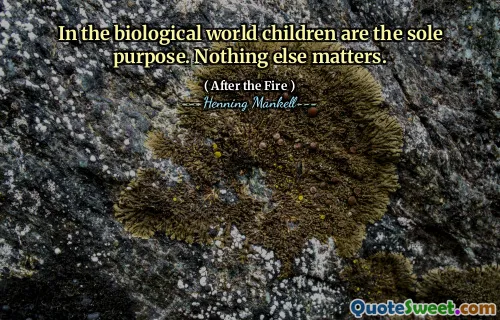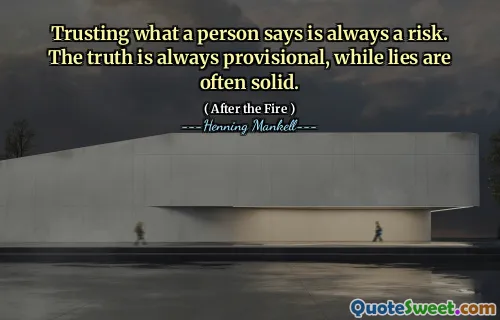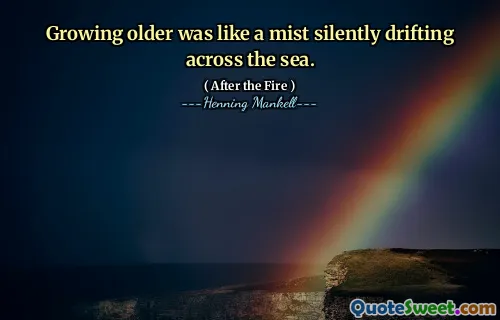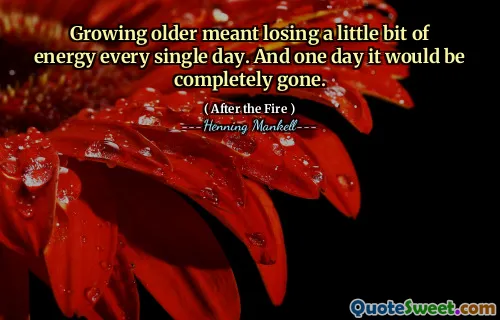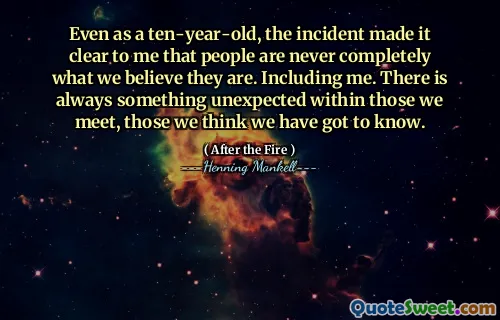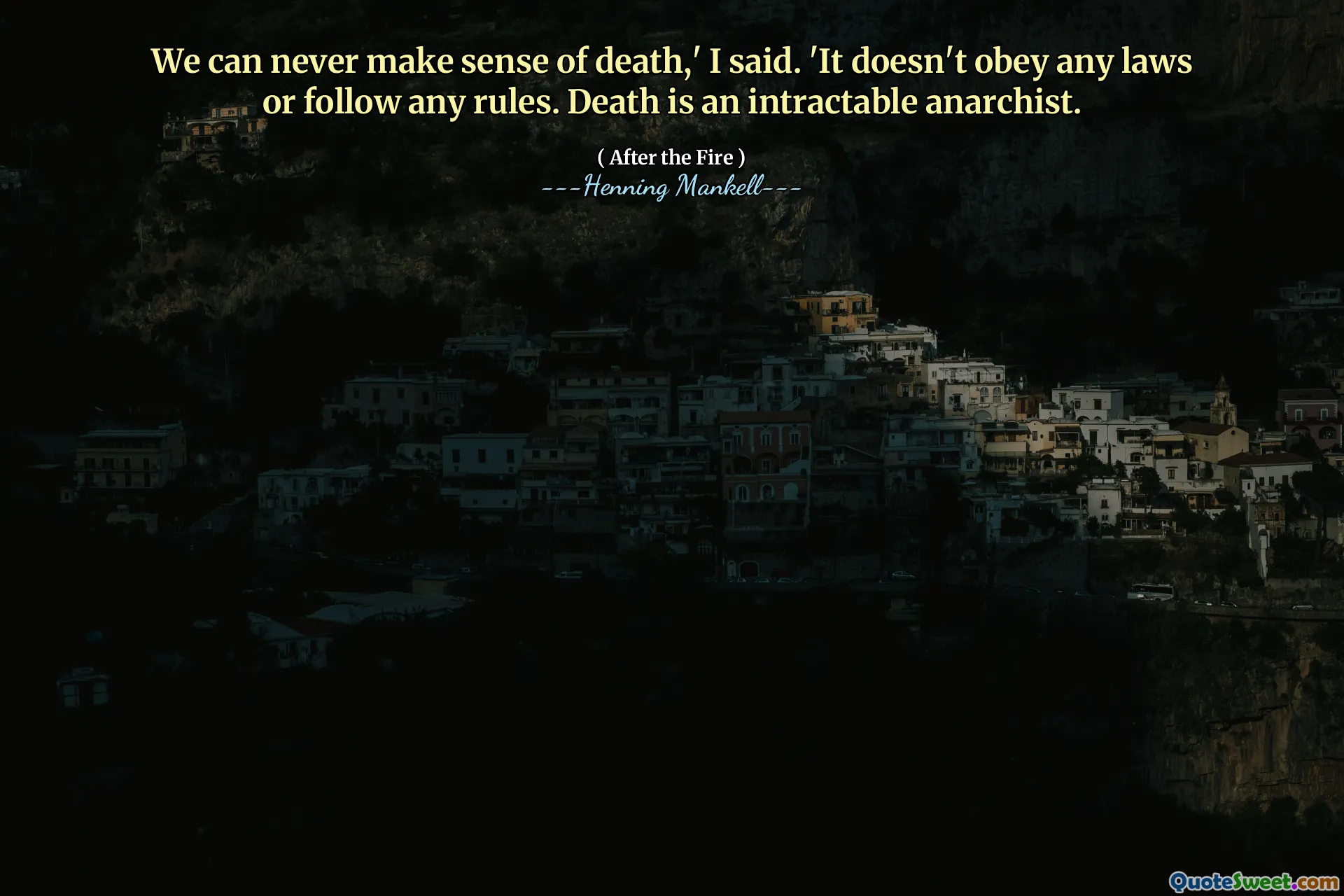
We can never make sense of death,' I said. 'It doesn't obey any laws or follow any rules. Death is an intractable anarchist.
In Henning Mankell's "After the Fire," the complexity and unpredictability of death are explored. The protagonist reflects on the idea that death does not adhere to societal norms, making it inherently chaotic and resistant to understanding. This perspective presents death as an anarchist force, challenging humanity's attempts to rationalize or control it.
This contemplation reveals a deeper philosophical struggle with mortality. The inevitability and randomness of death provoke a sense of helplessness, emphasizing that despite our efforts, we cannot impose order on such a fundamental aspect of existence.

